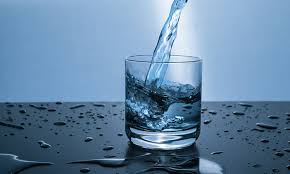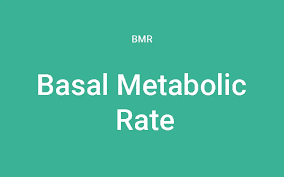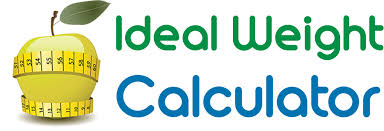Are you wondering if you are drinking enough water every day? Maintaining proper hydration is crucial for overall health and well-being. One way to determine your recommended daily water intake is by using a daily water intake calculator or a water consumption calculator. These tools can help you estimate how much water you should be drinking each day based on your age, weight, activity level, and climate. By inputting your information and tracking your water intake, you can ensure you are meeting your daily water intake goals and maintaining good health.
Water Intake Calculator
Your Ideal Hydration Requirement is:
[ez-toc]
Why Is Hydration So Important?
Water is the elixir of life. It is essential for our survival, and without it, we cannot function properly. Hydration plays a critical role in maintaining the body's internal balance and keeping us healthy. In this article, we'll discuss the importance of hydration and why it's crucial to stay hydrated.
Water is essential for the human body to function correctly. It helps regulate body temperature, lubricates joints, transports nutrients and oxygen to cells, and flushes out waste and toxins. In fact, up to 60% of the human body is made up of water, which shows how important hydration is for our well-being.
The benefits of staying hydrated are numerous. For one, it helps keep our skin healthy and glowing. When our body is dehydrated, it can lead to dry and flaky skin, which can cause premature aging. Drinking enough water throughout the day can help keep your skin looking healthy and youthful.
Water is also important for maintaining a healthy weight. Drinking water before meals can help you feel full, which can prevent overeating and weight gain. Water can also help boost your metabolism, which can aid in weight loss efforts.
Staying hydrated is also crucial for physical performance. When we are dehydrated, we may experience fatigue, headaches, and muscle cramps. These symptoms can impact our physical performance, making it harder to exercise or perform physical tasks. Drinking enough water can help prevent these symptoms and keep us feeling energized.
Furthermore, staying hydrated can have a positive impact on our mental health. Dehydration can cause irritability, fatigue, and mood swings. Drinking enough water can help regulate our mood and energy levels, leading to a more positive outlook.
In addition to drinking water, there are other ways to stay hydrated. Eating water-rich foods like fruits and vegetables can also contribute to our hydration levels. Avoiding sugary drinks and excessive caffeine intake can also help prevent dehydration.
In conclusion, hydration is crucial for our overall health and well-being. Drinking enough water throughout the day can help regulate body functions, maintain healthy skin, aid in weight loss, improve physical performance, and boost mental health. It's essential to make hydration a priority and ensure we are getting enough water every day to stay healthy and happy.
Recommended daily water intake per day for Male and Female
Water is essential for our bodies to function properly. It helps regulate body temperature, flush out toxins, transport nutrients and oxygen to cells, and maintain healthy skin. But how much water do we need to drink each day? In this article, we'll discuss the recommended daily water intake for both men and women.
The recommended daily water intake can vary depending on a variety of factors, including age, weight, activity level, and climate. However, the National Academies of Sciences, Engineering, and Medicine recommends a general guideline for daily water intake.
For adult men, the recommended daily water intake is around 3.7 liters or 125 ounces per day. For adult women, the recommended daily water intake is around 2.7 liters or 91 ounces per day. However, these recommendations are just a guideline, and individual water needs can vary.
It's important to note that these recommendations include water intake from all sources, not just drinking water. Water can also be obtained from foods and other beverages like tea, coffee, and juice. However, it's important to be mindful of the sugar and calorie content of other beverages, as they can add up quickly and lead to weight gain and other health issues.
Factors that can influence individual water needs include activity level, climate, and health conditions. For example, athletes or individuals who engage in intense physical activity may need to drink more water to replace fluids lost through sweating. In hot and humid climates, water needs may also increase to prevent dehydration.
Individuals with certain health conditions, such as kidney stones or urinary tract infections, may also need to increase their water intake to prevent these conditions from recurring.
The recommended daily water intake for adult men is around 3.7 liters or 125 ounces per day, while for adult women, it's around 2.7 liters or 91 ounces per day. However, individual water needs can vary depending on factors like activity level, climate, and health conditions. Staying hydrated is essential for our overall health and well-being, so it's important to make sure we are getting enough water every day.
Daily water intake in winter & in summer
water needs can vary depending on the weather and climate. In this article, we'll discuss the recommended daily water intake for both winter and summer.
During the summer months, we tend to sweat more, which can lead to dehydration. It's essential to stay hydrated to prevent heat exhaustion and other heat-related illnesses. The recommended daily water intake for adults during summer is around 3.7 liters or 125 ounces per day for men and 2.7 liters or 91 ounces per day for women. However, if you're engaging in physical activity or spending time in the sun, you may need to increase your water intake to replace fluids lost through sweat.
In addition to drinking water, you can also increase your water intake by eating water-rich foods like watermelon, cucumber, and oranges. You can also drink other fluids like sports drinks, coconut water, or unsweetened iced tea. However, it's important to be mindful of the sugar and calorie content of other beverages, as they can add up quickly and lead to weight gain and other health issues.
During the winter months, our bodies lose water through respiration, and we may not feel as thirsty as we do in the summer. However, it's still essential to stay hydrated, especially if you spend time in heated indoor environments. The recommended daily water intake for adults during winter is around 3 liters or 101 ounces per day for men and 2.2 liters or 74 ounces per day for women.
You can also increase your water intake by drinking warm beverages like tea, broth, or hot water with lemon. You can also eat water-rich foods like soup or stew to help maintain hydration levels.
The recommended daily water intake for adults during summer is around 3.7 liters or 125 ounces per day for men and 2.7 liters or 91 ounces per day for women, while during winter, it's around 3 liters or 101 ounces per day for men and 2.2 liters or 74 ounces per day for women. However, individual water needs can vary depending on factors like activity level, climate, and health conditions. Staying hydrated is essential for our overall health and well-being, so it's important to make sure we are getting enough water every day, regardless of the season.
Daily water intake for weight loss
Water is an essential component for our body to function properly. Staying hydrated is not only important for overall health but also plays a crucial role in weight loss. In this article, we'll discuss the recommended daily water intake for weight loss.
Drinking enough water throughout the day can help you achieve your weight loss goals. One of the reasons for this is that water can help you feel full and prevent overeating. When you drink water before meals, it can help you eat less and consume fewer calories, which can contribute to weight loss.
The recommended daily water intake for weight loss is around 3.7 liters or 125 ounces per day for men and 2.7 liters or 91 ounces per day for women. However, individual water needs can vary depending on factors like activity level, climate, and health conditions.
Drinking water throughout the day can also help boost your metabolism, which can aid in weight loss efforts. Studies have shown that drinking 500 milliliters of water can increase metabolic rate by up to 30% for up to 1.5 hours after drinking. This can help you burn more calories throughout the day, contributing to weight loss.
In addition to drinking water, you can also increase your water intake by eating water-rich foods like fruits and vegetables. These foods are low in calories and can help you feel full, which can prevent overeating and contribute to weight loss.
It's important to note that drinking water alone is not a magic solution for weight loss. It's essential to maintain a healthy diet and exercise regularly to achieve your weight loss goals. However, staying hydrated can support your weight loss efforts and contribute to overall health and well-being.
Daily water consumption chart
Water is essential for our bodies to function properly, and staying hydrated is important for our overall health and well-being. However, it can be challenging to know how much water we should be drinking each day. In this article, we'll discuss a daily water consumption chart to help you determine your recommended daily water intake.
The recommended daily water intake can vary depending on factors like age, weight, activity level, and climate. However, a general guideline is to drink at least 8 glasses or 64 ounces of water per day. This amount is equivalent to around 2 liters or half a gallon of water per day.
To help you determine your recommended daily water intake, you can use a daily water consumption chart. The chart typically lists recommended water intake based on weight and activity level. Here's an example of a daily water consumption chart:
| Weight | Sedentary | Moderate Activity | Very Active |
|---|---|---|---|
| 100 lbs | 50 oz | 75 oz | 100 oz |
| 120 lbs | 60 oz | 90 oz | 120 oz |
| 140 lbs | 70 oz | 105 oz | 140 oz |
| 160 lbs | 80 oz | 120 oz | 160 oz |
| 180 lbs | 90 oz | 135 oz | 180 oz |
| 200 lbs | 100 oz | 150 oz | 200 oz |
The chart shows recommended daily water intake based on weight and activity level. For example, a person who weighs 140 pounds and engages in moderate activity should aim to drink at least 105 ounces or around 3.1 liters of water per day.
It's important to note that individual water needs can vary depending on factors like climate and health conditions. It's essential to listen to your body and drink water whenever you feel thirsty.
A daily water consumption chart can help you determine your recommended daily water intake based on weight and activity level. Drinking enough water throughout the day is important for our overall health and well-being,
FAQ on Water Intake
Q: How much water should I drink per day?
A: The recommended daily water intake is around 3.7 liters or 125 ounces per day for men and 2.7 liters or 91 ounces per day for women. However, individual water needs can vary depending on factors like age, weight, activity level, and climate.
Q: Can I drink too much water?
A: Yes, it's possible to drink too much water, which can lead to a condition called hyponatremia. Hyponatremia occurs when the sodium levels in the blood become too diluted, leading to symptoms like nausea, headache, confusion, and seizures. It's important to listen to your body and drink water whenever you feel thirsty.
Q: Can I get water from other sources besides drinking water?
A: Yes, water can also be obtained from foods and other beverages like tea, coffee, and juice. However, it's important to be mindful of the sugar and calorie content of other beverages, as they can add up quickly and lead to weight gain and other health issues.
Q: Do I need to drink more water when exercising?
A: Yes, when you exercise, your body loses fluids through sweat, and it's essential to drink enough water to replace these fluids. The American Council on Exercise recommends drinking 17-20 ounces of water 2-3 hours before exercising and 7-10 ounces of water every 10-20 minutes during exercise.
Q: Does the weather affect how much water I should drink?
A: Yes, the weather can affect how much water you should drink. During the summer months or in hot and humid climates, you may need to drink more water to prevent dehydration. During the winter months, our bodies lose water through respiration, and it's still essential to stay hydrated, especially if you spend time in heated indoor environments.
Water intake is essential for our bodies to function properly, and it's important to stay hydrated for overall health and well-being. One way to determine your recommended daily water intake is by using a daily water intake calculator or a water consumption calculator.

Daily water intake calculator - Water consumption calculator
A daily water intake calculator can help you determine your recommended daily water intake based on factors like age, weight, activity level, and climate. Simply input your information, and the calculator will provide you with an estimate of how much water you should be drinking each day. This can be a helpful tool to ensure you are staying hydrated and meeting your daily water intake goals.
Similarly, a water consumption calculator can help you track how much water you are drinking throughout the day. You can input the amount of water you consume from different sources like drinking water, tea, coffee, and other beverages. The calculator will track your water consumption and help you ensure you are meeting your daily water intake goals.
Using these tools can be helpful for maintaining good health and preventing dehydration. It's important to remember that individual water needs can vary, and it's essential to listen to your body and drink water whenever you feel thirsty.
In addition to using a daily water intake calculator or a water consumption calculator, there are other ways to increase your water intake. Eating water-rich foods like fruits and vegetables can also contribute to our hydration levels. Avoiding sugary drinks and excessive caffeine intake can also help prevent dehydration.
In conclusion, using a daily water intake calculator or a water consumption calculator can be a helpful tool for staying hydrated and maintaining good health. By inputting your information and tracking your water intake, you can ensure you are meeting your daily water intake goals. Remember to listen to your body and drink water whenever you feel thirsty, and consider other ways to increase your water intake like eating water-rich foods and avoiding sugary drinks.





